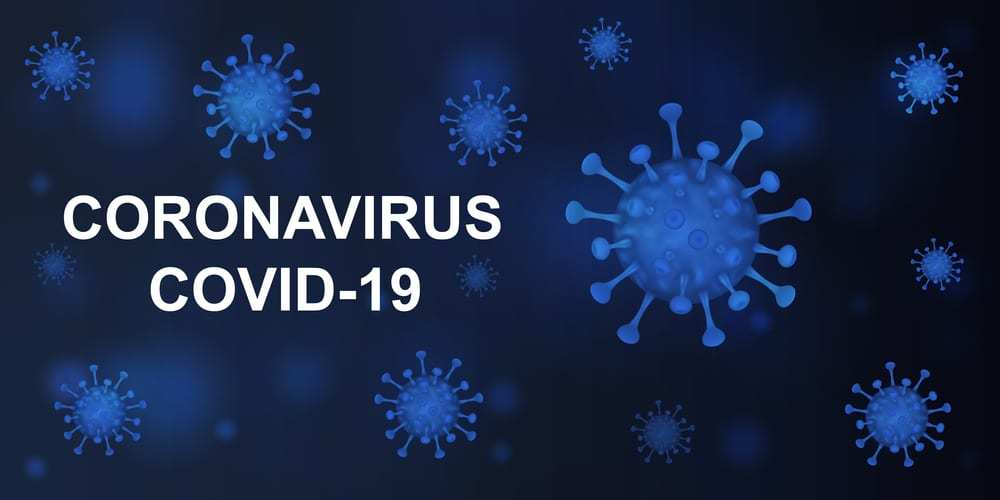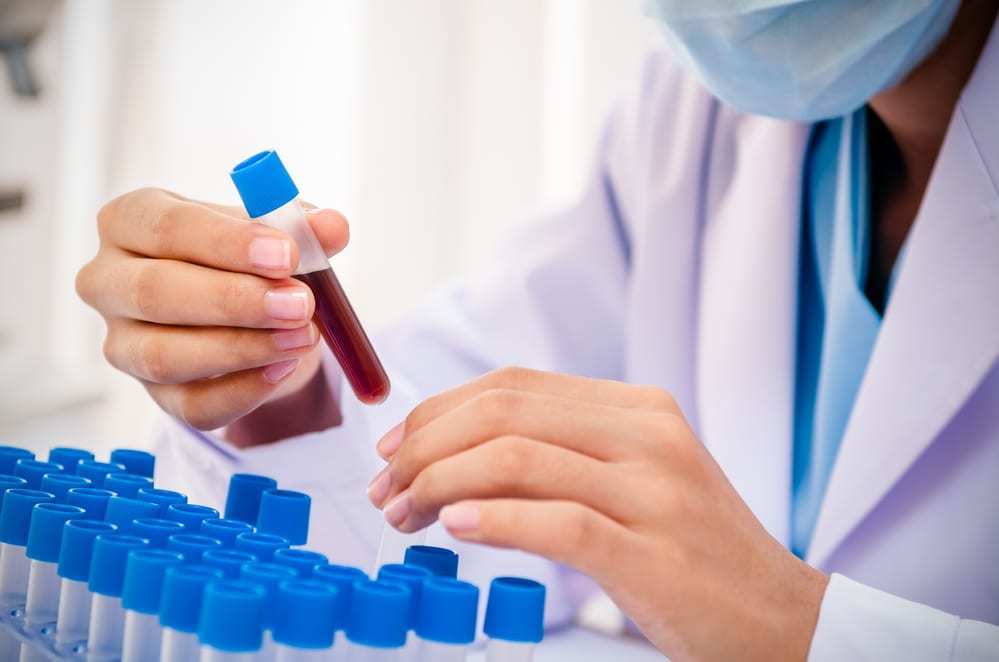
Serology Testing
“Test, test, test,” was the singular message from the World Health Organization’s Director-General Tedros Adhanom Ghebreyesus during remarks on the coronavirus pandemic in mid-March.
In Part I of this blog series on testing for the novel coronavirus, we covered the real-time reverse transcription polymerase chain reaction (RT-PCR) assay, which is administered via nasal swab and can diagnose an active infection. The other primary type of testing for coronavirus is serology testing (also referred to as antibody testing).
From an epidemiological standpoint, positive PCR tests and hospitalizations for COVID-19 are only “the tip of the iceberg,” according to Robert Garry, a virologist at Tulane University School of Medicine. The scale of mild or completely asymptomatic infection is not yet known — and this data about the infection rate for the population is something serology tests can help provide.
The Serology Test Process
A serology test requires a blood sample, which is transported to a central laboratory and spun down to separate the plasma. Technicians are not looking for the virus itself in the plasma, but for the presence of antibodies, that would have been formed while the body fought an active infection.
Although serology testing cannot diagnose active infection, the detection of antibodies indicates a previous novel coronavirus infection and the subsequent immune response. Antibodies, which are an important part of the human body’s response to any infection or illness, occur in three types:
- Immunoglobulin M (IgM) antibodies are the generic fighters. IgM levels spike within a few days of infection.
- As the infection proceeds, IgM is refined into immunoglobulin G (IgG), which can recognize and fight a specific virus. IgG peaks around 28 days after initial infection and can signal long-term immunity.
- A third type, immunoglobulin A (IgA), is present in mucosal tissues and is known to fight viruses such as influenza — and thus possibly the novel coronavirus as well.
How Serology Tests Work
A serology test for coronavirus uses an enzyme-linked immunosorbent assay (ELISA), which is a screening test to detect the presence and concentration of specific antibodies that bind to viral protein. This assay targets either the spike protein (the crown-like structure from which coronaviruses get their name) or the nucleocapsid protein.
Serological tests are difficult to develop and each serology test is different; some look for all three types of antibodies, some for just one. A perfect assay would involve an entire inactivated virus batch; however, providing this amount of inactivated virus at scale is challenging due to time concerns as well as batch consistency.
U.S. Serological Testing Status
Both the Centers for Disease Control (CDC) and several private labs are rolling out serological tests. Cellex Laboratories and Abbott Labs are two of the first companies to provide these tests to hospitals and governmental organizations. Abbott has said it will distribute more than four million serological tests by late April 2020, and has pledged to make twenty million tests available per month starting in June. The Abbott assay, which identifies IgG, is run in a centralized lab using Abbott’s instruments and can provide 100 to 200 results per hour.
Point-of-care (POC) serological tests are also in development. These function similarly to a pregnancy test, producing a paper readout and a colored indicator. POC tests could provide a way to overcome shortages of testing materials such as reagents and test swabs. POC serology tests cannot detect coronavirus antibodies early on; it takes the body about eight days to mount a detectable IgG response, with an IgG peak at 28 days.
Challenges with Serological Testing
There is still much to be learned about the potential uses and challenges of serological assays. Aside from the difficulty of developing accurate serological tests, there are instances of test failures, or false positives. Some of the serological tests in development have not been specific enough to target the novel coronavirus antibodies. These assays can also provide positive results when detecting antibodies specific to other coronaviruses, such as those that cause common colds and flu.
The serological tests deployed widely in the United Kingdom were plagued by both false negatives (not alerting to antibodies when they were present) and false positives (alerting to antibodies from other coronaviruses). The false positives are particularly concerning, as that result demonstrates that an individual has had an immune response to the virus when they have not. Since one plan is for these tests to be used to determine which individuals can go about more normal activities without causing the risk of a novel coronavirus infection to themselves or others, false positives must be minimized as much as possible.
The WHO has issued a warning against assuming that a person who tests positive for coronavirus antibodies is immune. “Right now, we have no evidence that the use of a serological test can show that an individual is immune or protected from reinfection,” said Dr. Maria Van Kerkhove, head of WHO’s emerging diseases and zoonosis unit. There have been reports of individuals, who have had COVID-19 and recovered, being re-infected and falling ill again.
Serology Test Use Cases
One promising use for serology tests is identifying antibody-rich plasma, or convalescent plasma, and using it to treat critically ill COVID-19 patients. This convalescent plasma treatment works on the premise that active antibodies in a plasma transplant can kickstart a patient’s own immune system. With the Food and Drug Administration’s Emergency Use Authorization in place, the Icahn School of Medicine at Mount Sinai is currently running serological assays to find plasma donors, and the Red Cross has set up a website to help identify donors. In recent days, there have been a number of organizations shifting focus to this potential treatment.
Serology tests can also be used to determine population infection rates; this public health data is invaluable for tracking and estimating herd immunity, understanding community spread of the virus, assessing risk to specific populations, and all this data can be used for fighting future pandemics. The National Institutes of Health will be testing 10,000 healthy volunteers around the United States for the presence of antibodies in order to get a clearer picture of the virus’s spread. Potential participants will be screened by telephone and finger prick kits will be sent to their homes to facilitate collection of micro samples of blood.
Some scientists have postulated that serology testing could create a type of “immunity passport” that would allow previously infected people to rejoin society. Theoretically, people who possess antibodies may have immunity against the virus, and therefore, not be able to contract the virus again. For example, healthcare workers who have antibodies to COVID-19 may be able to work without the fear of contracting it again. As discussed in the previous section, however, there is no guarantee of immunity with a positive serology test.
Additionally, these antibody tests could work as a screening tool for potential study subjects. This testing may become standard practice for all clinical trials and could provide a degree of security that a study cohort will not be affected by coronavirus, preventing clinical trial results from being skewed. RT-PCR tests are currently being considered as screening tools for entry into clinical trials, as they can screen out individuals who are infected but not symptomatic.
Both Singapore and South Korea have implemented widespread serological testing and enabled contact tracing. Contact tracing identifies a positive case, then alerts every person who was exposed to that case, directing them to self-isolate and thus disrupting the transmission pathway. This combined approach has allowed both countries to contain the virus and relax social distancing measures with relative speed, although there are reports of a second wave of virus transmission that has come with the relaxation of social distancing in Singapore.
Are you looking for a CRO to assist with your preclinical or clinical drug development related to the novel coronavirus or COVID-19? QPS has CLIA-certified and GLP-compliant laboratories ready to fast-track your novel coronavirus and COVID-19 RT-qPCR/QPCR and Serological Assays and vaccine development programs. Since 1995, QPS has provided discovery, preclinical, and clinical drug development services. An award-winning leader focused on bioanalytics and clinical trials, QPS is known for proven quality standards, technical expertise, a flexible approach to research, client satisfaction, and turnkey laboratories and facilities. For more information, visit www.qps.com/coronavirus or email covid19study@www.qps.com.








